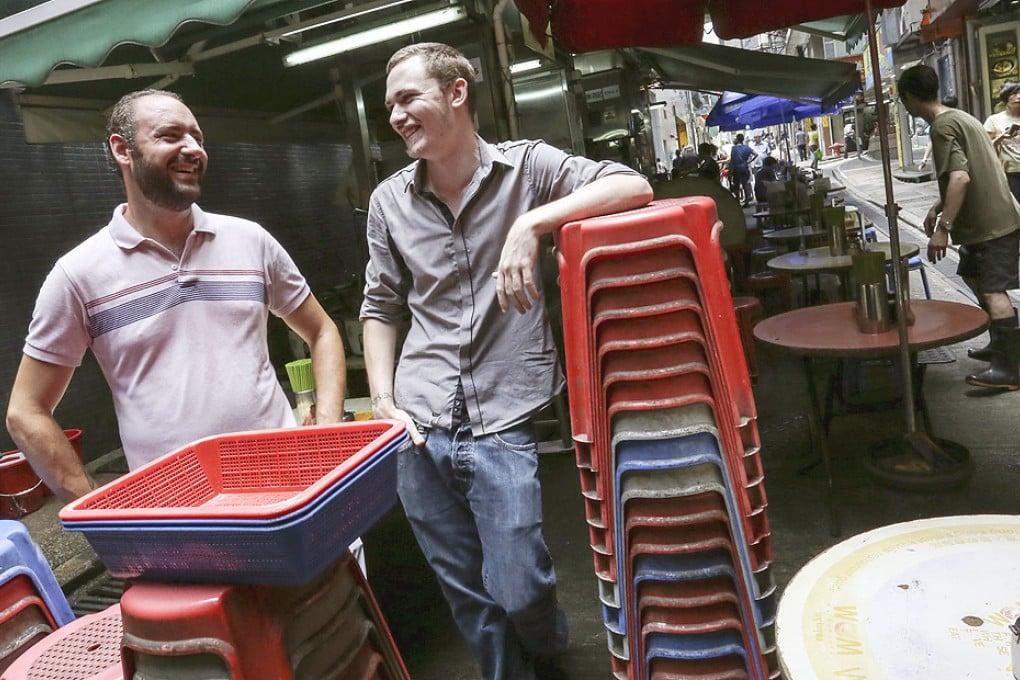Dai pai dong an endangered species in Hong Kong
Dai pai dong are an important part of local culture, but are we doing enough to keep them alive, asks Kate Whitehead

Sitting on a plastic stool, head bowed over a bowl of noodles listening to people chat, laugh and smoke - you can't get a more down-to-earth Hong Kong experience than that.
And if the sweat isn't running down your back, then you're not doing it right. But although dai pai dong embody the spirit of the city, this no-frills street food experience is under threat of extinction, say two young filmmakers.
Joseph Angelakis and Chris Owen met at film school two years ago, and have graduated from the International Academy of Film and Television in Wan Chai.
The dai pai dong is the only life he knows. Guys like him who are at the heart of it
When their former mentor suggested they enter the National Geographic video competition, it didn't take long to settle on a subject.
The Nat Geo Awards challenged filmmakers to make a five-minute documentary that paid tribute to the people and stories that reflect the spirit of Hong Kong.
"Dai pai dong seemed an obvious choice, as they embody the spirit of Hong Kong. We hope that people will watch this and realise that they are still around. If they like them, they should go and support them," says Angelakis.
The name dai pai dong means "restaurant with a big licence plate", referring to the size of the licences, which are bigger than those of other licensed street vendors. There are only 25 dai pai dong left in Hong Kong: 11 in Sham Shui Po, 10 in Central, three in Wan Chai and one in Tai O, according to the Food and Environmental Hygiene Department, which manages the licences.
The first licences were issued after the second world war to relatives of civil servants who had been killed or disabled in the war, allowing them to open small restaurants on the street and make a living.